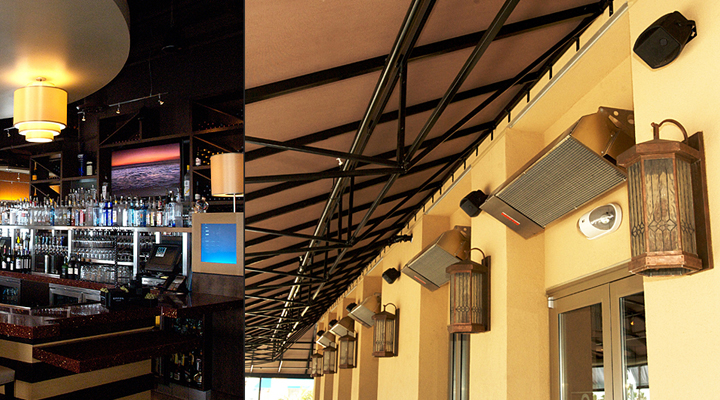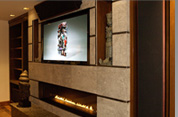Plasma or LCD?
Many people are making the investment into flat panel TV’s. The two major types of flat-panel TVs are plasma and LCD. Picture quality varies greatly between different makes and models, so sure to read reviews before you making your purchase. People ask us all the time, “Which is better, plama or LCD?”. We always say “whichever looks good to YOU.” Here some info that we put together to help you make your decision.
Plasma
Pros
- As little as 3 inches thick
- Very good home-theater image quality
- Wide viewing angle
- The best plasmas produce top-notch image quality, with excellent color, wide viewing angles, and demonstrably sharper details than direct-view CRTs when showing high-definition sources.
- Plasmas look equally good from very wide angles.
- Less motion blur than LCDs
Cons
- Relatively expensive
- Slight potential for burn-in
- LCDs generally have a higher native resolution than plasma TVs, but the difference isn’t that noticeable.
- Despite significant advances, plasma panels still can’t quite replicate the deep blacks that tubes can.
Lifespan
- Typically 60,000 hours, or about 20 years if used 8 hours per day
Screen sizes
LCD
Pros
- Available in a range of sizes
- Higher resolution than comparably sized plasmas
- No danger of burn-in
- Flat-panel LCD will continue to be the most popular HDTV technology, thanks to falling prices and plenty of choices.
- The plastic screens reflect less ambient light than plasmas’ glass, so they’re usually better for very bright rooms with little light control.
Cons
- Relatively expensive
- More motion blur than Plasmas
- Home-theater image quality generally not as good as on plasma models
- Relatively narrow viewing angle
- The picture quality of LCD TVs has historically suffered from poor black levels, but the latest versions are often much improve
- On every LCD, there are some brightness and color shift visible when watched from an angle that’s more or less removed from the sweet spot right in front of the TV (to either side, and especially above or below).
Lifespan
- Typically 60,000 hours, or about 20 years if used 8 hours per day
Screen sizes
|











